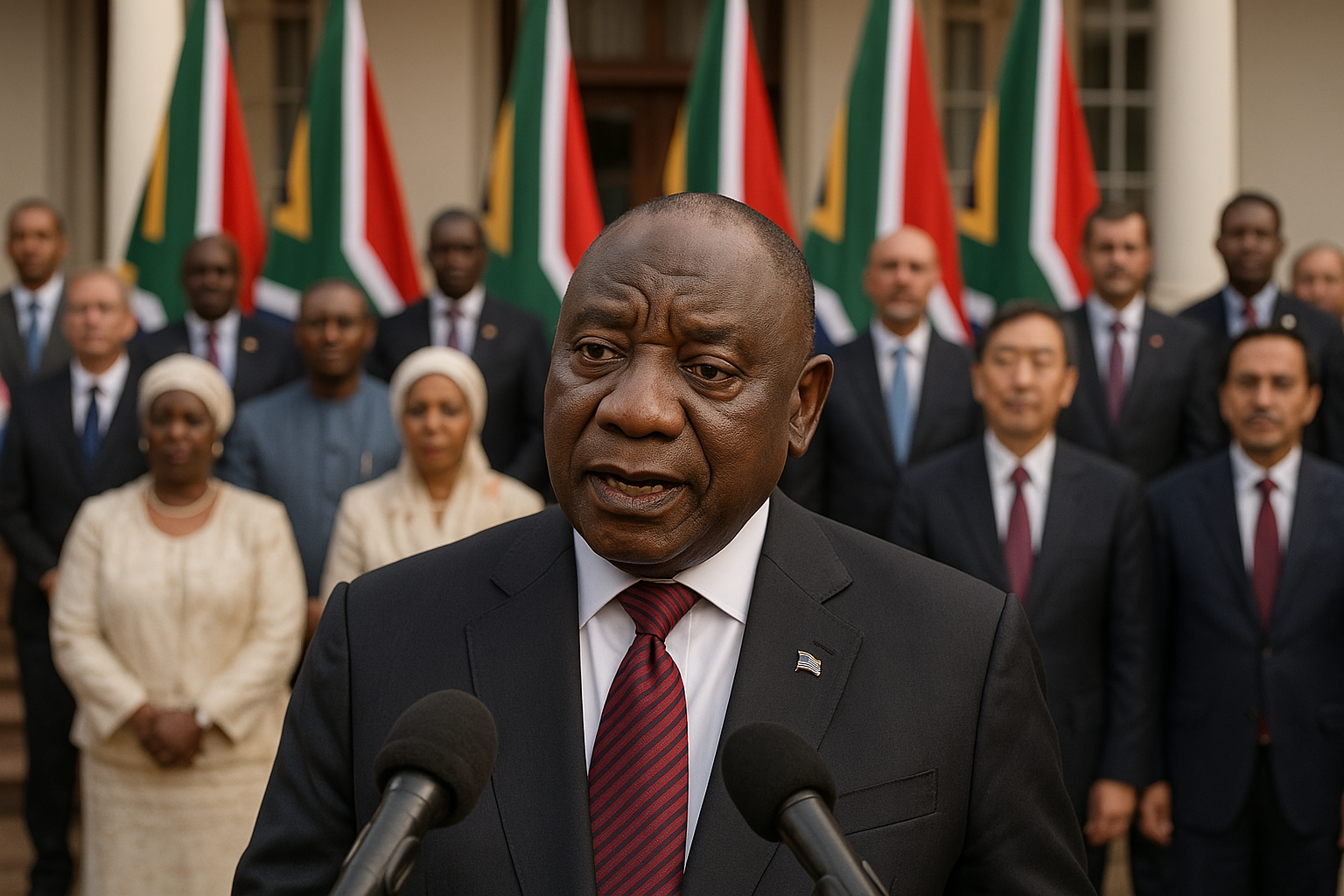Ramaphosa Reaffirms SA’s Independent Foreign Policy Anchored in National Interest
The President emphasized that South Africa’s economic diplomacy is critical at a time of global trade disruptions, tariff wars, and shifting power dynamics.

- Country:
- South Africa
South Africa’s foreign policy will remain firmly rooted in national interest, constitutional values, and the pursuit of peace and justice, President Cyril Ramaphosa has reiterated. Writing in his weekly newsletter on Monday, the President stressed that South Africa will never allow external powers to dictate its foreign policy choices but will instead continue to act on principle and in alignment with the country’s domestic priorities.
National Interest Above External Influence
“South Africa’s national interest will forever remain independent, not beholden to external influence. It will reflect our constitutional values and national priorities. As we continue to engage constructively with the international community, we have been consistent that this should always be on the basis of mutual respect,” Ramaphosa said.
He underscored that foreign policy decisions are guided by South Africa’s National Interest Framework Policy Document (2022), which clearly outlines that the country’s strategic partnerships must serve economic growth, safeguard sovereignty, and strengthen South Africa’s global position.
Economic Diplomacy at the Forefront
Highlighting the importance of economic diplomacy, the President reflected on South Africa’s recent participation at the ninth Tokyo International Conference on African Development (TICAD), hosted in Japan last week. The event provided an opportunity to deepen trade and investment ties with one of South Africa’s most significant Asian partners.
“Japan is an important trading partner for South Africa in sectors such as construction, manufacturing, technology and agriculture,” Ramaphosa explained, noting that forums like TICAD allow for the expansion of partnerships beyond traditional Western markets.
On the sidelines of the conference, South African and Japanese business representatives engaged in discussions on clean and renewable energy, hydrogen production, and the automotive sector. A notable highlight was the announcement of Isuzu Motors’ intention to expand across Africa, with its South African plant being positioned as a possible hub for commercial truck and truck body manufacturing for the continent.
Diversifying Global Trade Relations
The President emphasized that South Africa’s economic diplomacy is critical at a time of global trade disruptions, tariff wars, and shifting power dynamics. He said diversifying partnerships is key to protecting South Africa’s economy from external shocks while also ensuring inclusive growth at home.
“Economic diplomacy is an important part of our country’s foreign policy and has become all the more critical at a time of economic headwinds and global power shifts,” Ramaphosa said.
A Foreign Policy Rooted in Principle
Beyond trade, Ramaphosa reaffirmed that South Africa’s diplomatic stance will always be based on principle rather than external pressure. He pointed to the country’s enduring solidarity with Palestine and Western Sahara, despite criticism from some quarters.
“It is on principle that we continue to stand with the Palestinian people in their quest for statehood, recognising as we do the pain of dispossession, land theft and state-sanctioned brutality,” he said.
This principled outlook also extends to South Africa’s advocacy for human rights, multilateralism, and respect for sovereignty in international relations.
Role in Peacebuilding
South Africa continues to play a meaningful role in peacebuilding efforts across Africa and beyond. The President noted that the country is the 15th largest contributor to United Nations peacekeeping operations, citing involvement in initiatives such as the Arusha Peace Accords in Burundi, support for South Sudan’s transition, and facilitation of the Pretoria Agreement that ended conflict in Ethiopia’s Tigray region.
South Africa has also maintained engagement with both Russia and Ukraine, having joined a delegation of African leaders in 2023 to promote dialogue and de-escalation of the conflict.
“These engagements all reflect our commitment to advancing a foreign policy that advances our national interest and reflects the aspirations of our constitution, the African Union’s Agenda 2063 and the UN Charter,” Ramaphosa stated.
Bridge Between Global South and North
The President invoked the words of Nelson Mandela, highlighting South Africa’s unique geopolitical position at the “confluence of world affairs.” He stressed that South Africa remains well-placed to act as a bridge-builder between the Global South and developed North, advocating for fairness and equity in global governance.
“Our approach to diplomacy will continue to be guided by respect for sovereignty, the pursuit of a just and equitable world order, and a firm belief that negotiation and dialogue have a key role to play in the mediation and resolution of conflict,” Ramaphosa concluded.
Outlook
As global power shifts intensify and competition for influence in Africa grows, Ramaphosa’s reaffirmation signals a steady commitment to an independent, principle-based foreign policy that prioritizes South Africa’s economic development, sovereignty, and role as a peacebuilder on the global stage.










